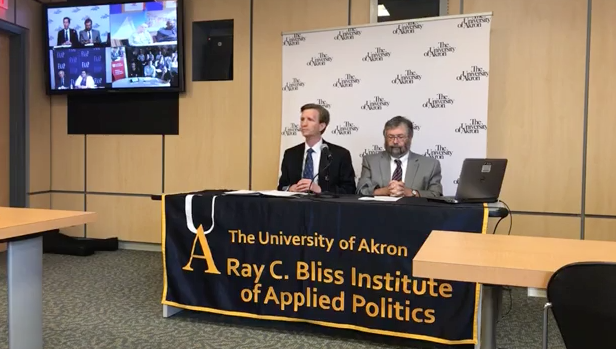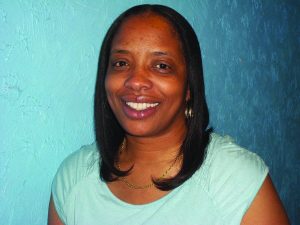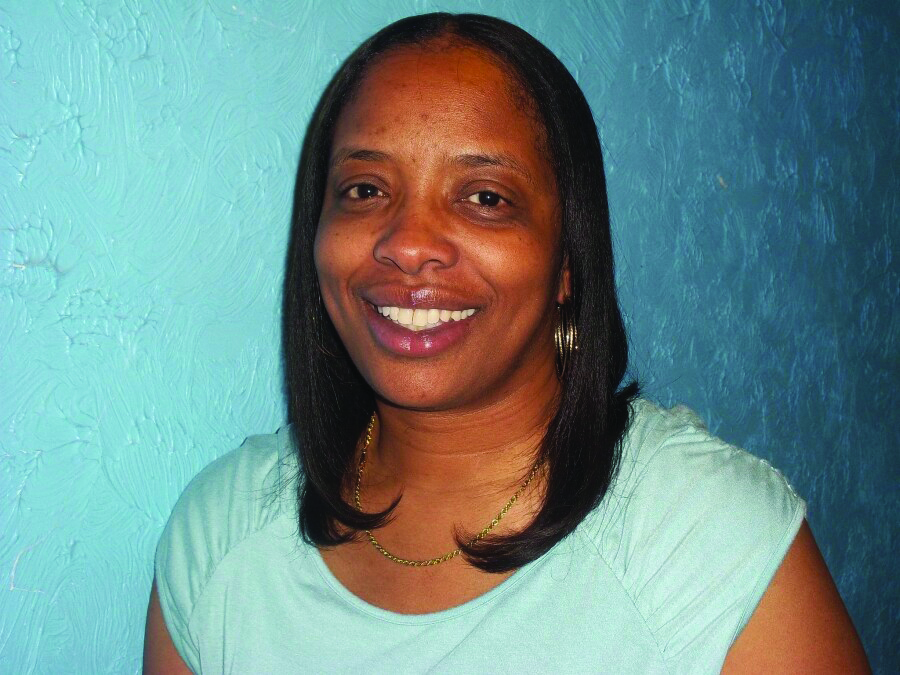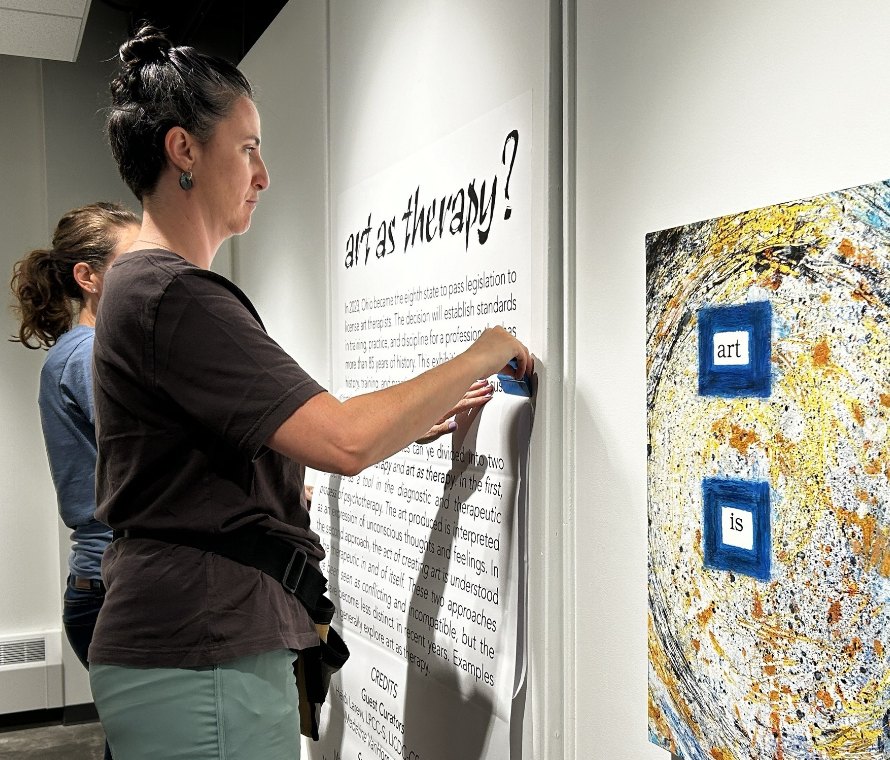Students Worldwide Engage in Political Discussion in Global Classroom Course
President Wilson next to Dr. Green during the press conference for The Global Classroom in Leigh Hall.
October 28, 2017
The Global Classroom, a political science course that will be taught simultaneously in four universities across four different continents in real time was announced Thursday morning by The University of Akron president, Matthew Wilson, Dr. John Green and several international partners.
The class will politically engage students from the United States, Brazil, South Africa, and France using cutting-edge video conferencing technology and online resources, Dr, Green, a professor of political science at the University and director of the Ray C. Bliss Institute of Applied Politics said.
UA, being the American participant in The Global Classroom, will be joined by a university in Brazil named Fundação Armando Alvares Penteado in São Paulo, the University of Pretoria from South Africa and Le Mans Universite from Le Mans, France.
The class is meant to enhance students’ understandings and perspectives of politics among different cultures around the world. President Wilson said: “It may be human nature to view one’s own nation and political dynamics as typical of the whole world. This initiative seeks to take our students beyond that assumption and to develop a more global perspective.”
While partnering universities introduced themselves, Professor Tinyiko Maluleke, the special advisor to the vice chancellor of the University of Pretoria said, “We see the global classroom as a unique opportunity to introduce our students to different and diverse perspectives on key political issues around the world.”
Maluleke said that he hopes students from France, Brazil, and the U.S will learn to appreciate the traditions and complexities of African political systems. He said he is convinced that the sharing of knowledge will grow a collective appreciation of other political cultures and will allow participants to see that they all share a common curiosity for politics and a common commitment to do better despite their differences in time zones and language.
The Global Classroom was inspired by a Campaign Battleground class at the Ray C. Bliss Institute of Applied Politics at the UA. Campaign Battleground was a part of a program called the International Campaign Fellows, which brought in students from Brazil, Liberia, and India for four to ten weeks and embedded them into the political atmosphere during last year’s election.
Adjunct professor, Jerry Austin said after the ICF program, there was a ceremony in which there were four representatives from four different continents: Africa, South America, North America and Asia. This made him wonder if there was available technology to bring everyone from those continents together via social media or, as will happen, video conference.
All of the international participants for The Global Classroom were brought together due to student contacts or pre-existing University relationships.
The class will begin next semester on Jan. 30. It will be a weekly class that will meet once per week for about two to three hours. Austin said that each partnering university will lead three classes throughout the semester on a rotating basis.
Each class will begin with the leading university presenting current events from their area, following that, the university will provide a relevant guest speaker, such as one from academia or politics.
Each university will determine credit hours for the course and who can take the course, Austin said. At the UA, the class is open to undergraduate students, graduate students and continuing education students.
Dr. Green said that The Global Classroom is an opportunity for students to be exposed to their counterparts from democratic nations. Political problems are not necessarily unique among democratic countries and the class enables students to look at particular problems for particular countries and then look at global solutions, he said
“More than ever before, we need to look beyond our respected borders with interest, respect and empathy in our global community. The world needs greater understanding and communication, particularly in light of political upheavals, divisions and disagreements both among and within nations,” President Wilson said at the press conference.












